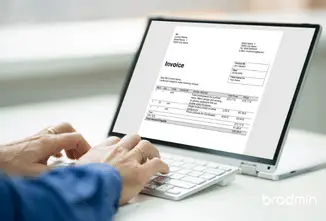Late payments are usually major issues for freelancers, and no matter what the terms of the agreement are, most of them will experience late payments from clients at one point or the other. So the reason why freelancers should issue late fees is , that even as I am writing this, I am owed over £3000 from my clients.
Well, I can certainly live with a few invoices getting delayed, but what happens if the sum gets even bigger?
This would significantly derail my plans for settling my bills and other money-related responsibilities.
Of course, we understand that most freelancers out there are in stressful situations where they keep trying to keep track of their clients and following up on the payments, and this shouldn’t be the case at all.
A client is supposed to pay you on time, immediately work is done, and if they may have some disputes about the payment, this should be settled as soon as possible, and payment remitted once it is done.
So, if this is the “norm,” then what is the solution?
Well, as a freelancer, one of the options available to you would be to apply some strict late payment fees for all late invoices or ensure that you take full payment upfront.
I know that you think this is easier said than done, and you really do not want to charge your clients a fee for late payments since you do not want to lose them, and again, which client will agree to an upfront payment before work is delivered? Probably none, or very few.
But, if you have a client who consistently pays late, I guess it’s about time you re-evaluated this relationship as you are not benefiting from it, and it essentially costs you money.
The road less travelled – charging late fees for your clients, is probably the best option for you.
So, let’s get into it.
How can the late fees to a client be applied?
The law states that a payment is “Late” when it exceeds the agreed payment date by just one day. If the rules are not set, you should expect payment 30 days after issuing an invoice or delivering goods and services, whichever one is later.
When writing this guide, the statutory interest rate that applies to late payments is currently 8% above the base lending rate of the Bank of England. However, this is on a business-business relationship.
Please note that you are allowed to stipulate different terms in your contract, e.g., you could charge 5% per month or part of the month for late payments, which adds up quicker than a statutory rate that usually amounts to charging pennies.
The next charge is the debt recovery fee, generally charged between £40 and £100, although it depends on the amount owed.
Why do freelancers get paid late?
There are many reasons why clients pay late; they could be busy, which is common with most companies, or suffering from bureaucratic slowness, which happens in large organizations, where payment must go through various stages before its bid.
You could also have a client for a bully who sees freelancers as powerless people who do not need to be paid on time. As a freelancer, you could also be part of the problem, especially if you do not enforce any strict rules and guidelines for payments.
Here are a few other reasons why clients pay late:
Can freelancers’ issue late fees?
Yes. As a freelancer, you should and can issue late fees, and this is usually more than enough of an incentive for you to get paid.
You should never give up on getting paid. If you have done the job, then the client must pay.
Anything else is wrong, and they are in breach of the agreement you made at the start of the project.
So, why don’t freelancers’ issue late fees to clients?
Well, freelancers depend on their clients for survival. Charging them anything other than the original agreed-upon payment may bring up unnecessary strains in the relationship and may lead to the loss of the client.
So, although late fees are one of the ways that freelancers can ensure they are paid, it is not always applicable.
Genuine clients will be apologetic when they miss a payment and will even agree to pay the additional charges, as it is the law after all.
If you do receive a negative response, then it could indicate that the client neither values nor respects your work, and you have a much bigger problem on your hands.
Why are late fees important?
Other than using late fees as an incentive for clients to pay, they are always a good idea for many reasons such as:
Souce: ipse.com
How does late payment affect freelancers?
It is common for you as a freelancer to get paid late, and when this becomes a recurring issue for most of your clients, you certainly have a significant problem on your hands.
Of course, dealing with overdue payments is an inconvenience to you, but there are many other problems associated with this, such as:
The late payment legislation for freelancers
For Freelancers, the late payment legislation allows one to charge interest for late and unpaid invoices at a rate of 8% above the Bank of England’s Base Lending rate.
Additionally, the law further entitles you to compensation for any additional costs incurred in the process of recovering the invoice as follows:
- For invoice amounts up to £999.99 charge is £40.00
- For invoice amounts between £1,000.00 and £9,999.99, the charge is £70.00
- For invoice amounts amounting to £10,000.00 and more, the charge is £100.00
Now, this legislation does preclude all freelancers from framing their contracts around the law, and for clients who wish to keep working with you, paying a late fee is not an issue for them.
It is, however, advisable that you think very carefully before deciding to charge the late fee to the clients or taking the legal way when trying to recover an unpaid invoice.
Conclusion
Late payment fees always depend on the freelancers, even though the law supports you on this.
Getting paid on time seems to depend on:- Ensuring that you agree on ALL the terms and conditions before you start any project.
- Monitoring your payment systems regularly to keep track of timely payments.
- Having a sound system for dispute resolutions
- Fostering good working relationships with your clients through constant communication to inform them of the payment procedures.





![Apology letter for late payment to supplier [with examples] 5 apology letter for late payment to supplier](https://brodmin.com/wp-content/uploads/2021/09/apology-letter-for-late-payment-to-supplier.webp)
![Invoice payment terms - UK edition 2022 [+ Net calculator] 6 Invoice Payment Terms UK Edition 2021](https://brodmin.com/wp-content/uploads/2021/09/Invoice-Payment-Terms-UK-Edition-2021.webp)
![Simplified guide to the late payment directive [EU/UK edition] 7 late payment directive EU UK edition](https://brodmin.com/wp-content/uploads/2021/09/late-payment-directive-EU-UK-edition.png)




